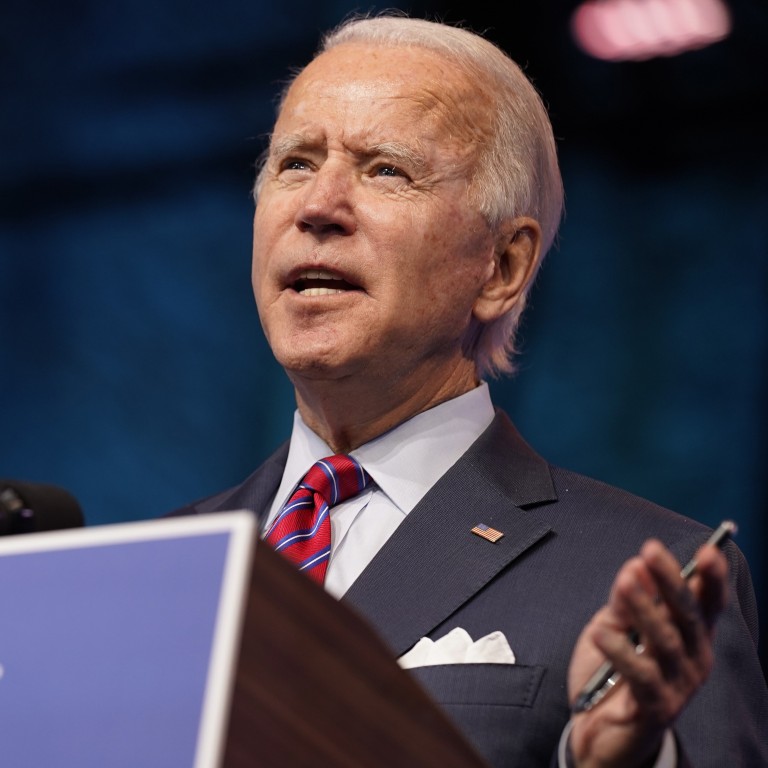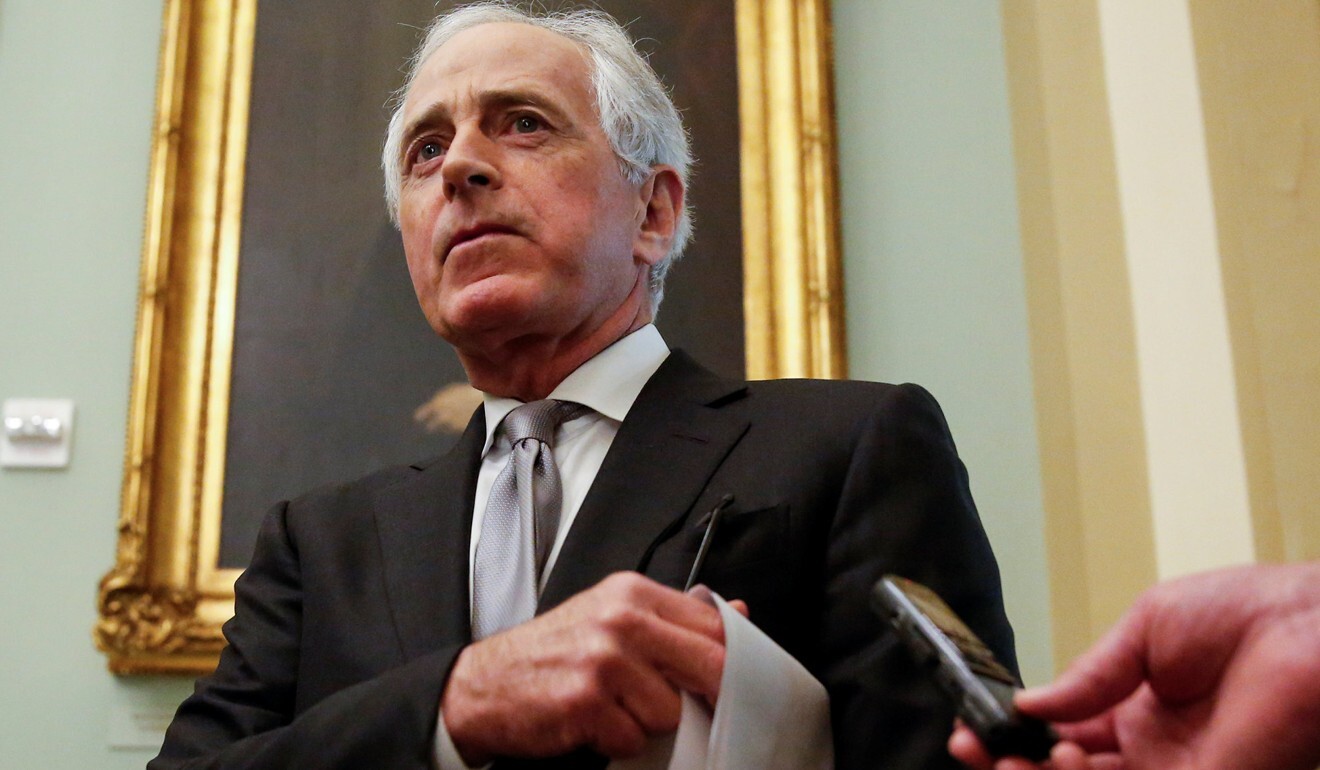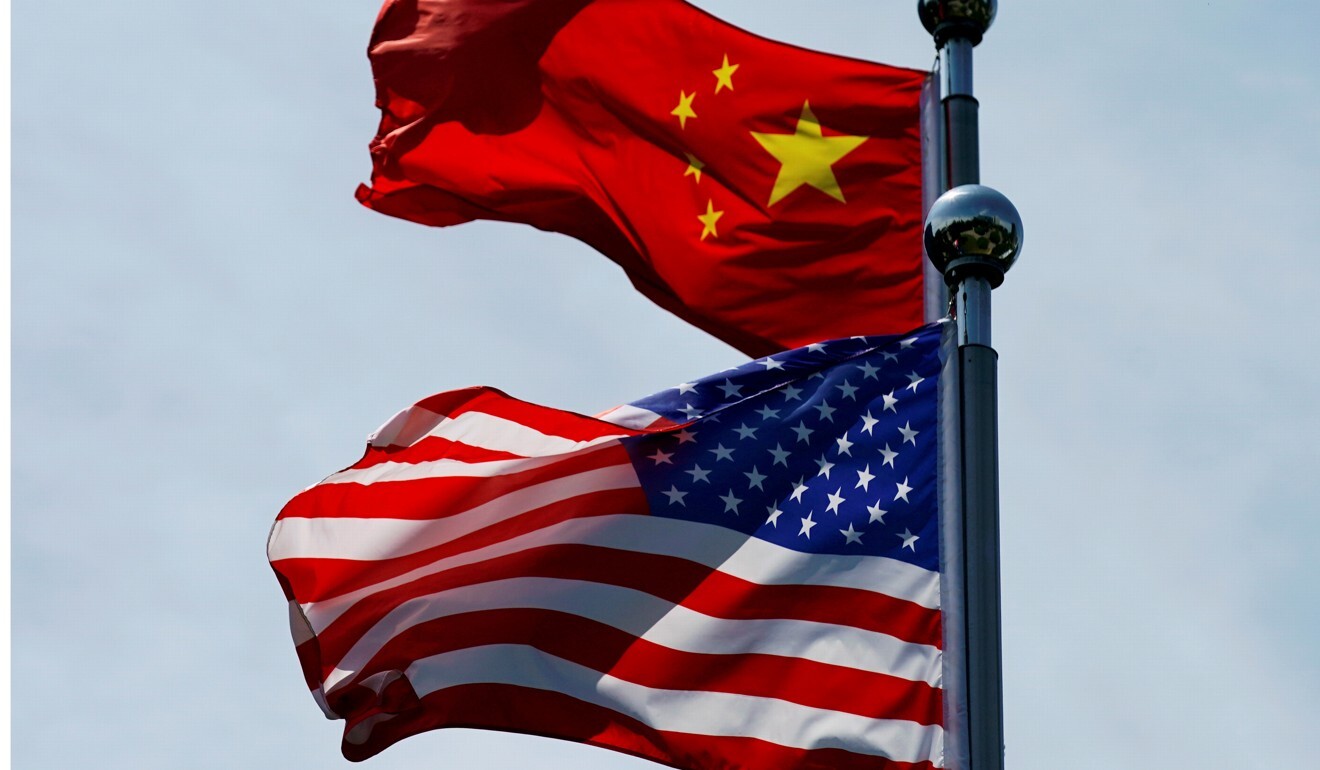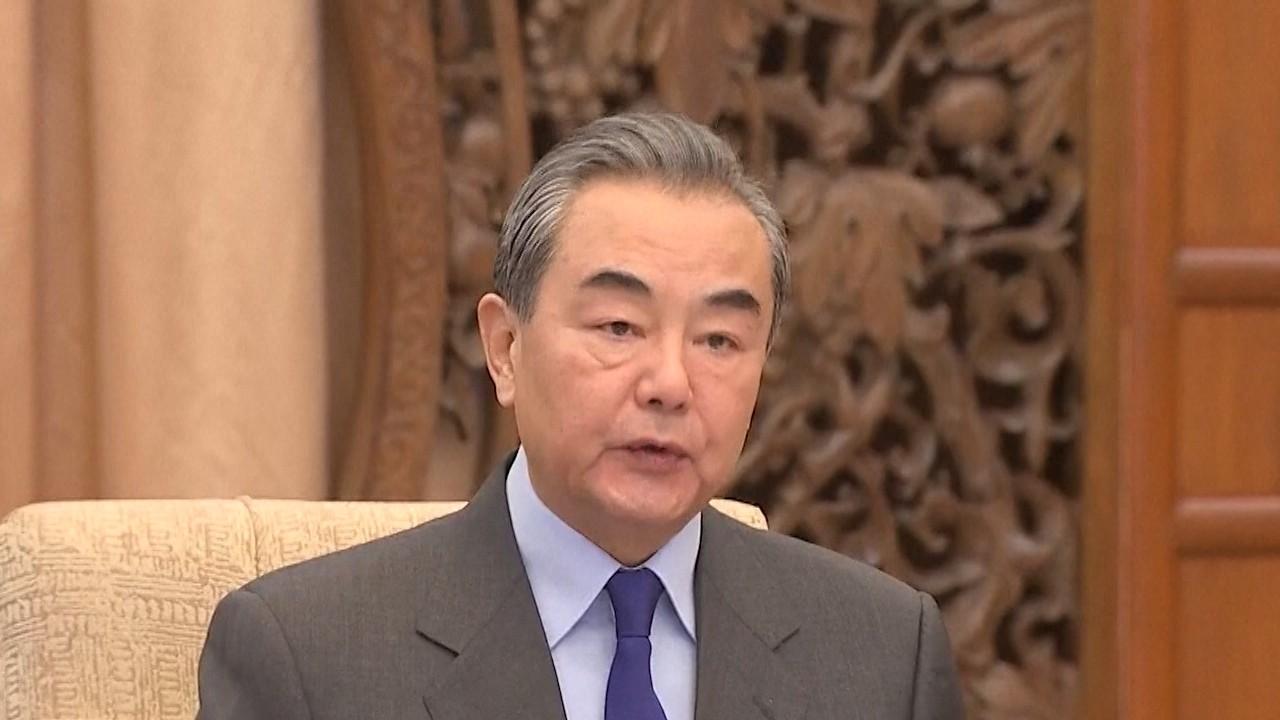
Biden may struggle to ‘restore’ US foreign policy to deal with China challenge, experts say
- International community is sceptical after Trump’s ‘America first’ approach, virtual panel discussion told
- Washington also advised to ‘cool it publicly’ with Beijing and re-establish a private, strategic channel of communication
During a virtual panel discussion on Tuesday, Bob Corker, former chair of the Senate Committee on Foreign Relations, and Richard Haass, president of the Council on Foreign Relations, said it would be difficult for Biden to “restore” US foreign policy to the pre-Trump era, given how global challenges had evolved and how the American public’s appetite for foreign involvement had changed.
While Biden’s commitment to multilateralism would be important for the US to tackle issues, notably with China, the international community was sceptical of how reliable Washington’s foreign policy would be after Trump’s “America first” approach shattered long-standing norms, they said.
At the event hosted by the California-based Milken Institute, Corker said the Trump administration had been able to help Americans better understand the challenges that China presented, but had not done a good job in organising US allies to meet that challenge.
“I think the steps that Biden can now take in coming out and restoring those relationships can go a long way towards us collectively doing the things we need to do to counter some of the things that China is doing that are unacceptable,” he said.

But he cautioned that there were difficulties in rallying allies to deal with Beijing, given many countries’ heavy economic reliance on China.
“Certainly we need to work with them if we’re going to have an effective, long-term policy dealing with China, but it’s going to take a lot of work because they, too, are going to be fearful of what it will mean for them economically,” he said. “It takes more work. It’s much easier to tweet out things and to throw tariffs around and be transactional in what you’re doing.”
US trade adviser violates laws with ‘Beijing Biden’ commentary, investigators say
Haass said that Biden in the White House should re-establish a private, strategic channel of communication with China to help navigate the tumult between the powers, given the importance of the bilateral relationship.
“I would basically cool it publicly with China. I would dispense with the sort of public speeches that the Secretary of State [Mike Pompeo] is so fond of, and instead I would actually institute a real, private, strategic dialogue,” Haass, a former US diplomat under the George W. Bush administration, said. “The United States and China need to establish some rules of the road, figure out where we can maintain the possibility of cooperation, but China has also got to understand what we can’t live with and where we’re going to push back in the South China Sea or Taiwan, or some of the human rights practices.”

He argued that the US should set up export controls on certain technologies to China, while also working with allies to strengthen American competitiveness.

01:15
Chinese Foreign Minister Wang Yi puts forward 5 proposals for more stable China-US ties
Joe Biden must start with Japan alliance to counter China’s influence, say former US officials
Haass said on Tuesday that until the US tackled its domestic agenda, including controlling the coronavirus outbreak, the rest of the world would continue to look at America differently.
“There is no longer the assumption of continuity in American foreign policy, there’s no longer the assumption about our predictability or even reliability,” he said. “That hurts us tremendously. If we want to be an influence, if we want to be a great power, that’s just a fact of life. Until we demonstrate over time that we’ve re-earned this reputation for reliability, I think others will see us differently and they’ll always wonder: if it happened once, could it happen again?”

